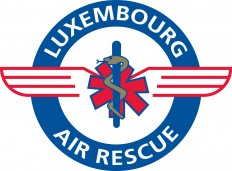Terribly relaxed? How a whole family turns into an emergency case for the LAR

The Biewer Family
The last family holiday before their two oldest children start student life was meant to be full of beautiful memories. However, their stay in Sardinia ended with a severe tragedy. The murmur of the sea, the chirping of the crickets and a gentle breeze are filling the campsite in Sassari (Sardinia). Laughter is heard from pitch 15. Under the awning of their caravan and in the cosy atmosphere of a table chimney, seven travellers from Luxembourg Mr and Mrs Biewer, their daughter (22), her boyfriend and their three sons (12, 15, 20) enjoy dining together in the open air.
Their oldest son finishes first and sprawls on the hammock, while the rest of the family keeps eating. Thereupon, the father gets up to refill their table chimney, which runs on bioethanol. There was a sudden hiss and my face went up in flames. The image of that fire is still etched into my mind, confesses Mrs Biewer in a faltering voice. Mrs Biewer and her husband are in flames. Quick-wittedly, the children throw towels over their mother. The oldest son makes a lunge at his father and throws him into the sand. Driven by panic, the mother starts to run, misses the little wall surrounding the terraced pitch and trips over it.
A neighbour hears her screams, hurries over to her and throws himself on her to extinguish the fire. Some eyewitnesses call the emergency services. The arriving ambulance is the last image in the mother's mind before she looses her memory. 25 per cent of her body sustained second- to third-degree burns. She even had to be reanimated on her way to the hospital. Later on, the doctors placed her into an artificial coma. With burns of a second and third degree on 5% of his body, her husband got off relatively lightly.
The children came away with a shock, as their daughter points out: All of a sudden, my brothers and I relied completely on ourselves, in a foreign country whose language we do not speak. Although I am an adult, I felt helpless and was relieved when other adults supported us. Apart from a supportive campsite neighbour, who allows the children to sleep in her caravan, it is above all the contact with Luxembourg Air Rescue, which gives the daughter something to hold on to.
Two hours after the accident, she is speaking to Stéphane Belkadi from the LAR alert centre. On a daily basis, he and his colleagues receive calls from members caught in medical emergencies abroad. Strokes, heart attacks and road accidents are among the most common circumstances for repatriation requests. However, situations such as this do not occur more than twice a year. After all, this was about a whole family in medical and human distress. We did not only have to look after the severely injured parents, but also their traumatised children, emphasises the medical regulator.
Thus, he immediately reaches out to an uncle of the family, who is also on holiday in the South of France, so that he can assist the children on the spot. Such care can by no means be taken for granted. My brother-in-law was astonished that the LAR promptly provided him with tickets for the first possible flight to Sardinia, states Mrs Biewer. At the same time, the LAR gets in touch with the hospital in Italy in order to find out more about the two patient's medical condition. Mrs Biewer's state of health was very critical. The local doctors treated her injuries in the best possible way, but her treatment needed to be continued in a specialised clinic for severe burn victims as soon as possible. Thanks to our good relations with the "Centre de Traitement des Brûlés" in Loveral near Charleroi, we were able to quickly arrange the transfer, explains Stéphane Belkadi. Yet, the daughter has also been of great help with the planning. She kept a clear head until the very end, despite all she has been through. That is why she is a real hero, underlines the LAR regulator.
To buy extra time, Belkadi and his flight planning colleagues summarily redirect a LAR Lear Jet, which was returning to Luxembourg. Thus, the medical crew on duty LAR intensive care nurse Guido Genten and emergency doctor Carina Tidden had to prepare themselves for an unexpected follow-on mission. We did not have much time and, therefore, only little information in order to get ready for our patients, but, our job often requires a high degree of flexibility, explains Guido Genten. The medical team only realises how challenging the circumstances actually are as they reach the hospital in the evening. While the father is stable enough to be transported, the mother's medical condition turns out to be very unstable. It seemed as if she were conscious. She responded to her name and moved. Her blood pressure was too high and the induced anaesthesia was not deep enough. This generated additional stress for her body, which was already notably afflicted by the burns. We increased the dosage of the anaesthesia and stabilised our patient for the transfer on the following day, describes Guido Genten.
The fact that the medical team could get a more precise idea of the patient's health on the eve of the transfer flight saves time on two counts for everyone involved. We were not only able to serenely stabilise Mrs Biewer, but this also allowed us to share her relative values immediately with the specialist hospital in Belgium and to ensure an optimal patient transfer, specifies Belkadi. In the morning, Carina Tidden and Guido Genten carry the two patients in a fully equipped air ambulance to Charleroi. The daughter was waiting for the rescuers in the hospital corridor. While her brothers are on their way back home with their uncle, she stayed in Italy in order to accompany her parents on their transfer flight. At that time, the crew does not know that the 21-year-old did not see her parents since the tragedy.
I often experience emotional moments in my job, yet, this one has particularly remained with me, outlines Guido Genten. Still, the young woman does not only prove her strength during the moving reunion with her parents, but also throughout the whole flight. On the plane, time literally flew. Mrs Biewer required intensive monitoring, so that we had our hands full at all times, states the LAR intensive care nurse. As they reach the hospital in Belgium, it becomes clear how important the quick transfer is for the mother's recuperation process. Tests have shown the presence of a multi-resistant bacterium on her skin, which she contracted during her hospitalisation in Italy. Only after a long antibiotic therapy, the doctors were able to treat her burn injuries and to perform surgery on the two ankles she broke when she fell over the wall. Unlike Mr Biewer who can leave the specialist hospital after one week only. But he comes to visit his wife in Belgium every day. My brothers, our family, friends and I took turns to accompany our father and talked to our mother, hoping that she can hear us. During this whole time, we all stuck together and it was especially my boyfriend, who supported me and gave me the necessary strength, states the daughter.
Six weeks after the accident, Mrs Biewer awoke from the coma and promptly had to cope with several bad news. She has a comminuted fracture on her left ankle. The doctors cannot anticipate if she will ever be able to walk again. She is bound to a wheelchair for four months. At first she is also unable to move her left hand due to the burn injuries. During one of more than twenty performed skin grafts, further infectious complications have occurred. It was a really hard time. Nonetheless, I was lucky to be in competent hands all the time with LAR, in Charleroi and in the rehabilitation centre in Luxembourg, emphasises the mother.
Apart from the restricted mobility, the 48-year old woman also needs to get used to the visible traces of her accident. It still is a major effort for me to look into the mirror and I also keep trying to accustom myself to the looks of my environment. In addition to this, she struggles with the loss of six weeks of her life. I have to cope with a gigantic memory gap. Within the family, we often talk about the accident and the following time. I consistently learn new details and keep putting the pieces of the puzzle together.
After all, the family does not know how and why exactly the accident occurred. What we can say with absolute certainty, is that table chimneys running on bioethanol are very dangerous devices, that one should simply keep away from, asserts the mother of four subsequently. Despite the catastrophe, she is grateful none of her children was injured. I do not dare to imagine what would have happened if our oldest son would not have gotten up. He sat to my left and the left half of my body is burnt most heavily. When my husband was refilling the chimney, our youngest son sat right behind him and thus was protected. The other children sat next to the chimney, but the flames went up in a different direction. The journey has clearly left scars on everyone whether visible or not.
Yet, the family, and above all the mother, do not let themselves be defeated. She persistently fights her way through rehabilitation. She is slowly regaining mobility in her left hand and in her legs. Guido Genten and Stéphane Belkadi could personally witness this, as the mother and her daughter came to visit them at the Findel, one year after the repatriation. I did not expect her to overcome these serious injuries as successful as she did. Her recuperation progress, which she ultimately owes to her determination to live, is very impressive, states Guido Genten, visibly moved. Mrs Biewer looks confidently to the future. She purchased an e-bike and is impatiently looking forward to planning a bike tour with her husband.
The Biewer family






